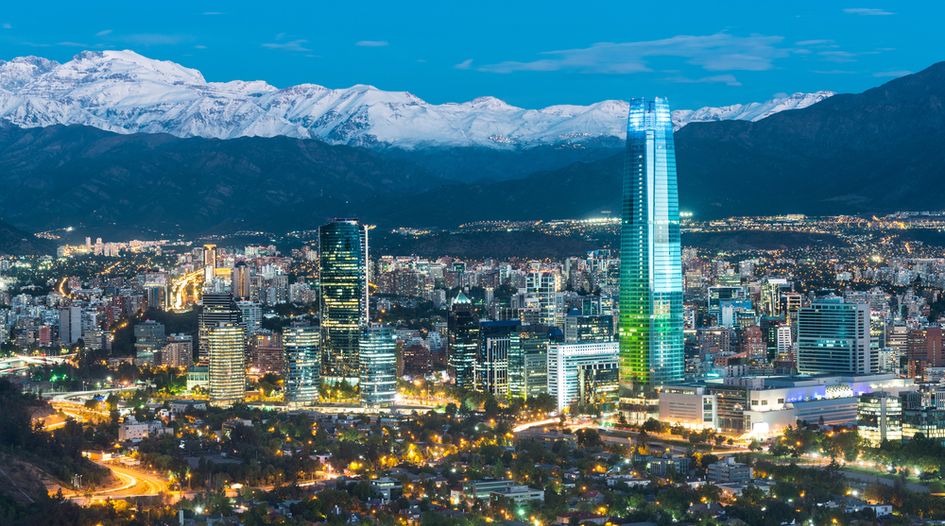Why brand owners should have an eye on Latin America

Latin America continues to attract attention for its strong and largely untapped market, along with its potential for economic growth. However, brand owners need to understand the unique legal considerations involved in registering and enforcing trademarks in the region.
A deep dive into the Trademark Prosecution Review 2024 highlights that Chile, the Dominican Republic and Venezuela are leading the charge when it comes to aligning with international trademark standards, with technological advancements and the reparation of commercial relationships proving major drivers of these efforts.
Madrid Protocol looks set to transform trademarks in Chile
The biggest trademark news in Chile for 2023 was undoubtedly the country’s implementation of the Madrid Protocol, with significant questions remaining about how it should be interpreted. So far the Trademark Office is applying the treaty in a “self-executing” fashion, deeming that there is no need to reform the Industrial Property Law 19,039/1991 in order to apply the system (for further detail, see “Chile: Turbulent Year Sees IP Rethink and Introduction of the Madrid Protocol”).
The Exempt Resolution 184/2022 will remain in force and so far there is no indication of any challenge to the law. However, according to Alvaro Arevalo and Francisco Valverde of Villaseca Abogados, the number of rights holders interested in invalidating the Exempt Resolution to better implement the protocol could grow in the coming months. This could result in reform to the Industrial Property Law, depending on the ongoing interpretation of the protocol in Chile; although they maintain that should this happen, “its effects should not be retroactive as, in order for this to occur, it is required by law that not only there be favourable consequences for the interested parties, but also that the rights of third parties not be infringed”. There therefore remains considerable uncertainty over the protocol’s implementation. Ongoing confusion in Mexico with regard to filing declarations of use illustrates that this process can be far from straightforward (see “Mexico: Declarations of Use, How to Avoid Losing Trademark Rights”).
In addition to this step change, amendments to the Industrial Property Law have introduced a radical overhaul of Chile’s trademark regime, including registration for non-traditional marks (eg, sounds, motions and 3D images), made possible by a shift in attitudes towards the requirement for graphical representation. The updated law eliminates the requirement for graphical registration, making room for the regularisation of non-traditional marks in a “long overdue response to technological changes”.
Further, revocation actions due to non-use or loss of distinctiveness are now possible in Chile. Under changes introduced by the Amendment Law 21,355, a new trademark can be cancelled if it has not been put to “real and effective” use in Chilean territory within five years of registration. Revocation actions can also be used by rights holders to defend against opposition or invalidation motions.
Dominican Republic brings technical expertise to filing regime
The Dominican Republic has seen crucial updates to the trademark prosecution sphere in the wake of technological developments in recent years (see “Dominican Republic: Key Improvements To and Challenges In the Current Trademark Prosecution Landscape”). With the stated aim of attracting foreign investment and encouraging innovation, the government project Digital Republic has been creating systems to digitise administrative processes and develop a straightforward registration mechanism. The issuance of digital certificates and a new system for the registration of pledges reflects the ability of the Dominican government and the Patent and Trademark Office to drive the application of technology and facilitate streamlined prosecution processes for IP rights. This is making the country an attractive territory for prosecution and distinguishing it from its neighbours.
With elections upcoming later this year, it remains to be seen whether the Digital Republic initiative will remain a priority under a new government. In the meantime, Pamela Hernández of MINIÑO advises practitioners and rights holders to “align their strategies” for finding and recording evidence of market relevance with the goals of the initiative.
For details of another country that has been directing a lot of energy into updating its regime, see “Argentina: A Closer Look at Trademark Law Reforms”.
Venezuela’s likely return to the Andean Community could trigger prosecution overhaul
Commercial relationships between Venezuela and Colombia have been re-established after years of diplomatic conflict, which has set the ball rolling for Venezuela’s re-entry into the Andean Community (see “Venezuela: Rejoining the Andean Community Could be Seismic for Brand Owners”). For trademark prosecution, this means adopting the Andean Nations’ legal framework, namely, the integration system. Decisions 351, 486, 632, 689, 345, 366, 391, 423 and 448 will be implemented immediately following Venezuela’s re-entry to the community, which is hoped to materialise in the near future.
For Ricardo Enrique Antequera of Antequera Parilli & Rodríguez, determining a specific timescale for this is a “formidable challenge” due to the unpredictable and “complex nature of diplomatic, political and legislative processes”. In preparation, he is helping his clients stay as up-to-date as possible with the evolving IP framework, and fortifying his firm’s IT systems for “readiness if the Andean Opposition becomes available once again for Venezuelan registrations”.
It is hoped that this shift in relations will improve trademark prosecution processes, especially on matters that lack internal regulation by Venezuela, such as plant breeders’ rights, access to genetic resources and country trademarks.
The WTR Trademark Prosecution Review 2024 casts an expert eye on some of the most pressing issues facing those involved in trademark prosecution in the Americas, Asia-Pacific and Europe, the Middle East and Africa. The review can be read in full here.

